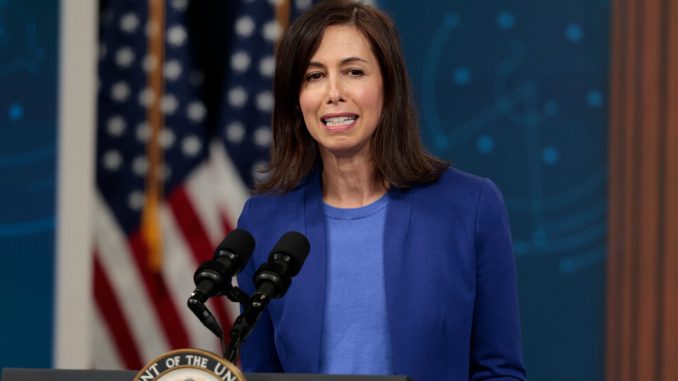
The Biden administration plans to bring back open internet rules that were enacted during the Obama administration and then repealed by the Trump administration.
In a speech on Tuesday, Jessica Rosenworcel, chairwoman of the Federal Communications Commission, declared that the repeal in 2017 put the F.C.C. “on the wrong side of history, the wrong side of the law, and the wrong side of the public.”
The earlier open internet rules, known as net neutrality, prohibited broadband internet suppliers — telecommunications and cable companies — from blocking or slowing online services. It also banned the broadband companies from charging some content providers higher prices for priority treatment, or “fast lanes” on the internet.
“This afternoon,” Ms. Rosenworcel said in her speech at the National Press Club in Washington, “I am sharing with my colleagues a rule making that proposes to restore net neutrality.”
The move by Ms. Rosenworcel came after the Senate confirmed Anna Gomez as a fifth commissioner of the F.C.C. earlier this month. That gave the Democrats a majority on the commission, breaking a 2-2 partisan deadlock.
The F.C.C. chairwoman will release the full text of the proposed rule on Thursday. That is a first step. The commissioners will vote on the draft proposal on Oct. 19. If approved, there will be a period of public comment and replies for a few months. The commission will likely vote on the final rules next year.
The net neutrality issue has stirred waves of public interest in the past. There have been street protests, torrents of email comments and even threats of violence against commissioners who opposed the earlier net neutrality rules.
It has been a technical issue that resonated politically with progressives who see the rules as a needed restraint on corporate power and a campaign to keep the internet open and fair.
The cable and telecommunications companies opposed the rule largely because they saw it as regulatory overreach. They feared that classifying broadband providers as “common carriers,” like phone companies, opened the door to utility-style regulation and government price setting.
So far, the fears on both sides seem to have been overstated. During the Obama years, the government did not meddle with broadband pricing. After the repeal of net neutrality rules, the broadband suppliers have generally not been found to engage in “blocking, throttling and paid prioritization.”
But Ms. Rosenworcel emphasized that one lesson of the pandemic was to underline the importance of high-speed internet service and the need to safeguard this “essential infrastructure of modern life,” she said.


Be the first to comment